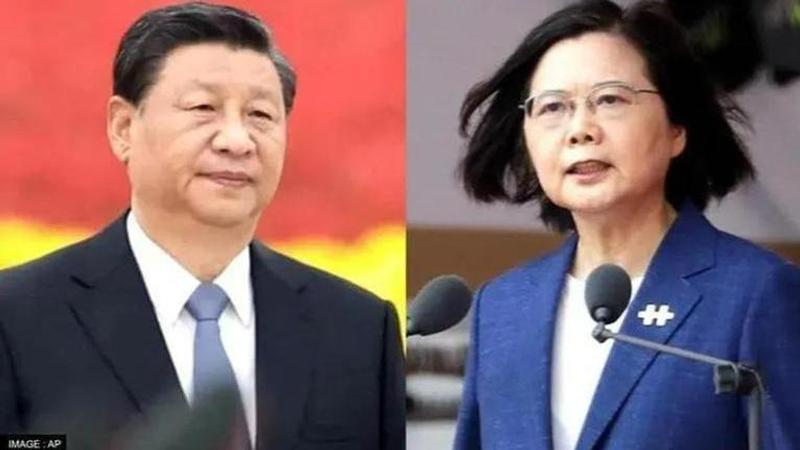Published 17:21 IST, April 7th 2023
Xi Jinping avers it would be 'wishful thinking' to expect China to compromise on Taiwan
Chinese President Xi Jinping stated that it would be "wishful thinking" to expect China to compromise on Taiwan.

Chinese President Xi Jinping stated that it would be "wishful thinking" to expect China to compromise on Taiwan, in his first public comment after Taiwan's President Tsai Ing-wen met with US House Speaker Kevin McCarthy in California. Xi made these remarks during a meeting with European Commission President Ursula von der Leyen in Beijing on Thursday, as per a report from South China Morning Post. In the meeting, he also emphasised that China was a good partner for Europe in tackling global challenges, in an attempt to persuade EU that following Washington's policy on China would be a mistake for Brussels.
According to Chinese Foreign Ministry's statement, Xi said that "[the] Taiwan issue is the core of China’s core interests. The Chinese government and Chinese people will never agree to anyone making a fuss about the one China issue." “Anyone who expects China to compromise on the Taiwan issue is [engaging in] wishful thinking and will only shoot himself in the foot," he added.
What did von der Leyen say after the meeting?
After meeting with Chinese President Xi Jinping in Beijing, European Commission President Ursula von der Leyen addressed reporters and stated that the issue of Taiwan was discussed. Von der Leyen told Xi that the use of force to change the status quo is unacceptable and that it is important to resolve tensions through dialogue. The meeting came a day after Taiwanese President Tsai Ing-wen and a bipartisan group of 17 US lawmakers met in California, which Beijing criticized as a "sneaky transit" and an attempt to engage in "official meetings."
Why is Taiwan important for Beijing?
What explains China's obsession with Taiwan? Taiwan is a crucial issue for Beijing due to its strategic and geopolitical significance. The island of Taiwan is located just off the coast of mainland China and is a key location in the western Pacific. Its location has important implications for China's national security, as it provides a natural barrier that protects China's eastern coast from attack. It also gives China strategic access to the Pacific and the ability to project power into the region. It is also located close to Japan, South Korea, and the Philippines, which are all key U.S. allies in the region.
From a domestic perspective, the status of Taiwan is also a key issue for the Chinese Communist Party (CCP) and the Chinese people. The CCP sees the reunification of Taiwan as a key goal and a matter of national pride. The CCP's legitimacy is based in part on its ability to maintain China's territorial integrity, and giving up on Taiwan would be seen as a significant failure, which might undermine the legitimacy of the regime in Beijing.
Furthermore, the Chinese people have strong emotional ties to Taiwan. Taiwan was part of China until 1949, and many Chinese people see the island as a "renegade province" that needs to be brought back under Beijing's control. The issue of Taiwan is therefore a sensitive one for the Chinese government, and it is unlikely to back down from its position on reunification.
Updated 17:21 IST, April 7th 2023




